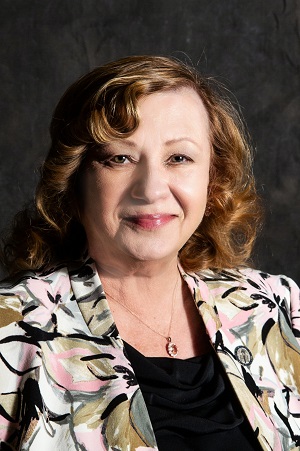BY PHIL CALHOUN WITH MAGGIE STEDT
This article continues from Part One last month. The focus is on competitive differences local independent insurance brokers provide and can highlight. We will cover Medicare and group ideas for sharpening your competitive edge.
Local independent insurance brokers are most successful when they have resources they can access. Many brokers lean hard on carrier reps, general agencies, and Field Marketing Organizations (FMOs) to find and deliver solutions to their clients.
“Phil, one of biggest differentiators for both the Medicare focused agent and those with group business is their depth of knowledge and willingness to search out the answers when needed,” explains Maggie Stedt. “Although I have been Medicare focused in the past 18 years of my practice, I learn something new about Medicare and the products almost every day.”
When it comes to competition for new business and the service work needed for client retention, local independent insurance brokers mostly stand alone. The broker’s financial reward for this advocacy work is growing their commissions. True client service can only be provided by a trusted and experienced local independent insurance broker who performs this role one client at a time.
We hope this information gives you the tools needed to explain to both your prospects and clients how you are different and why you can be a better option than the competition.
First, remember that the carriers and other “non local” entities, use their significant resources to reach the same leads you want. Most importantly your clients are being targeted constantly, often with inaccurate information.
Make sure your clients know to contact you to fact check what they get in the mailbox, hear on the radio or see on TV.
Specifically, employers and people turning 65 are directly contacted by email, mailers, phone calls, Facebook and other social media. The same marketing tools you often use are also used by these competitors. The difference is the deep pockets of the competition who sponsor further advertising with TV commercials that hammer your target market, especially Medicare. Professional employer organizations (PEOs) and payroll companies offer their HR and other services practically free just to get the group health business. Educate your clients about the difference you make for them through being accessible and doing the work necessary to solve your employer client’s problem.
“To be successful in the business and compete with carriers and others, you need to continually learn about your line of business and build many resources you can access to solve your client’s problems,” suggests Stedt. “There are many booklets and articles to digest to find answers to your questions. Do your homework before you call Medicare or the carrier. If you are in the Medicare sales business, your top two textbooks are the Medicare and You and Who Pays First booklets published by Medicare. Know the Medicare website and become familiar with where to look up information to serve your clients.”
Local independent brokers offer these advantages to clients:
1. No cost: Working with you as a local independent broker means there is never any “cost” to learn about or enroll in a medical plan. When someone goes directly to an insurance carrier the premiums and plan coverage is the same. There is absolutely no savings on cost and no extras offered by a carrier employee.
TIP: Inform your clients that you get paid for your professional assistance to research options and then match and enroll them in the plan that suits their needs best. Payment is made by the insurance carrier to a broker who researches and enrolls their client in the plan with the ideal coverage and within their budget.
2. Not tied to one company or one plan type: Most brokers work with several insurance carriers and have the expertise to compare and contrast benefits from the many plans carriers offer. This gives you the ability to do what is best for your client — listen to their needs and then match them with a plan that will meet most of all of their needs.
TIP: Inform your clients that a carrier employee is only paid to enroll in the carrier’s medical plan even if the plan is not a fit in all areas of need a client requires. You as a broker represent their needs and are committed to find a plan that is best for them.
3. Can provide support for clients: When calling an 800 line or carrier, the person who enrolls an individual is rarely the same person who will be there to help after the sale. Local independent insurance brokers are able to advocate for their clients because they remember who they are and they have the expertise to help. Carrier employees have a job to do. Enrollers enroll and do not service or advocate for “members”. Clients looking to find a new doctor, get a referral for medical care, access valuable benefits, or seek plan options during open enrollment, are all reasons to work with local independent insurance brokers who can help and do so in a timely manner.
TIP: Inform your clients what the term “broker” means: brokers are not locked into one carrier and as such can match a client’s needs to any plan in an unbiased manner because we can shop plans from all carriers.
4. Can act as an advocate for clients: Local independent insurance agents advocate by finding medical and drug plans that cover most if not all of their client’s needed medications and medical providers. Also changing plans and medical providers is not something a carrier employee can do to the extent a local independent insurance broker can. How many times does a client end up stuck between the health care system and the health insurance carrier? Can they get help from the insurance carrier?
TIP: Inform your clients that as their local independent broker you can advocate for them when they need to file an appeal or grievance against the decision made by the insurance company and or the health care provider. You provide this help at no cost. The knowledgeable broker can help the client navigate the appeals process and provide guidance on who should be contacted. They also keep up with changes in the carrier’s service area, or the medical group changes with new doctors and closed practices.
Please keep these four points in mind as you do have strengths over a carrier employee, outside the area agent, and especially a phone enroller.
“Local independent insurance brokers often need help to find client solutions,” Stedt comments. “Our carrier rep friends, general agent and FMO colleagues are a great resource. Successful brokers put time into building and maintaining these valuable relationships.”
Many brokers benefit from involvement with local health insurance memberships in a professional association. Some have formed or joined collaborative groups of common minded independent agents.
We want to know more about what you may find as helpful to you as a local independent insurance agent. We invite you to complete the local independent insurance broker survey and let us know what you need. Use the QR Code on your cell phone and you will be able to access the survey questions. Your answers are confidential.

If you prefer, we can email you the questions so just contact phil@integrity-advisors.com and we will send the survey to you.

PHIL CALHOUN published “The Health Insurance Broker’s Guide: How to Protect, Grow and Sell Your Commissions” last year. His goal is to help active brokers reach 100% commission protection and retiring brokers make the exit planning process work for them. Phil consults with brokers statewide and offers his eBook free online at www.healthbrokersguide.com. Contact: phil@integrity-advisors.com or call 1-800-500-9799 to schedule an appointment and get your personal questions answered.

MAGGIE STEDT is an independent agent that has specialized in the Medicare market for the past 21 years. She is the immediate past president of California Association Health Underwriters (CAHU) and past president of her local Orange County Health Underwriters Association (OCAHU) chapter. Reach her at maggiestedt@gmail.com.
